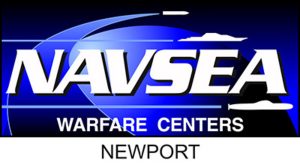Shane Mueller (CLS/ICC-HCC) will be presenting at the National Academy of Sciences/Air Force Research Laboratory (AFRL) Human-AI Teaming Through Warfighter-Centered Designs Workshop this afternoon (July 29) at 2:30 p.m.
Mueller’s presentation is titled “Human-centered approaches for explainable AI.”

Timothy Havens, the William and Gloria Jackson Associate Professor of Computer Systems, has co-authored a paper recently published in The Journal of the Acoustical Society of America, Volume 50, Issue 1.
The paper is titled, “Recurrent networks for direction-of-arrival identification of an acoustic source in a shallow water channel using a vector sensor.” Havens’s co-authors are Steven Whitaker (EE graduate student), Andrew Barnard (ME-EM/GLRC), and George D, Anderson, US Naval Undersea Warfare Center (NUWC)-Newport.
The work described in the paper was funded by the United States Naval Undersea Warfare Center and Naval Engineering Education Consortium (NEEC) (Grant No. N00174-19-1-0004) and the Office of Naval Research (ONR) (Grant No. N00014-20-1-2793). This is Contribution No. 76 of the Great Lakes Research Center at Michigan Technological University.
Abstract
Conventional direction-of-arrival (DOA) estimation algorithms for shallow water environments usually contain high amounts of error due to the presence of many acoustic reflective surfaces and scattering fields. Utilizing data from a single acoustic vector sensor, the magnitude and DOA of an acoustic signature can be estimated; as such, DOA algorithms are used to reduce the error in these estimations.
Three experiments were conducted using a moving boat as an acoustic target in a waterway in Houghton, Michigan. The shallow and narrow waterway is a complex and non-linear environment for DOA estimation. This paper compares minimizing DOA errors using conventional and machine learning algorithms. The conventional algorithm uses frequency-masking averaging, and the machine learning algorithms incorporate two recurrent neural network architectures, one shallow and one deep network.
Results show that the deep neural network models the shallow water environment better than the shallow neural network, and both networks are superior in performance to the frequency-masking average method.
Citation: The Journal of the Acoustical Society of America 150, 111 (2021); https://doi.org/10.1121/10.0005536Steven Whitaker1,b), Andrew Barnard2, George D. Anderson3, and Timothy C. Havens4